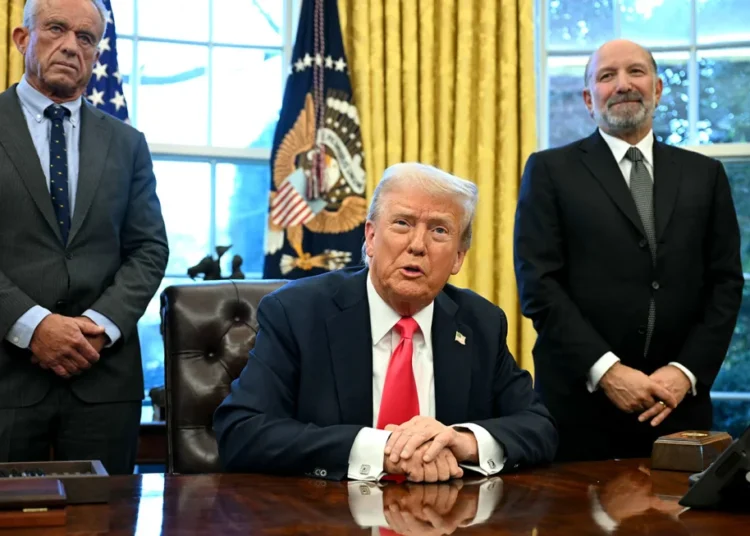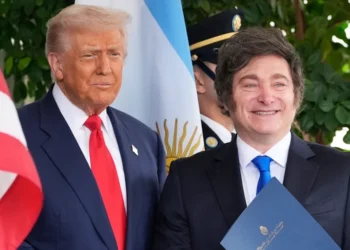In a headline-grabbing announcement, Howard Lutnick, Chairman and CEO of Cantor Fitzgerald, has claimed that his firm sold 1,000 U.S. Gold Cards in a single day—bringing in a staggering $5 billion in investment. If accurate, this would mark the most successful single-day launch of any residency-by-investment product in global history.
The U.S. Gold Card, a proposed alternative to the traditional Green Card or EB-5 visa, was introduced under Donald Trump’s 2024 campaign as a new type of high-value investor visa, offering wealthy foreigners a path to U.S. residency and citizenship in exchange for a $5 million investment.
While the program has yet to be formally codified into U.S. immigration law, Lutnick’s comments have stirred major interest—and raised serious questions—about its structure, legitimacy, and global demand.
What Is the U.S. Gold Card?
The U.S. Gold Card was introduced in late 2024 as part of Donald Trump’s renewed immigration platform. Unlike the EB-5 visa, which currently requires a minimum investment of $800,000 in job-creating enterprises, the Gold Card aims to streamline the process for ultra-high-net-worth individuals, requiring a $5 million investment in exchange for:
•U.S. residency rights.
•A potential pathway to U.S. citizenship.
•No direct job creation requirement (unlike EB-5).
•A faster, simplified approval process.
The details of the program remain under development, and as of March 2025, the Gold Card has not yet been signed into law or officially launched through U.S. Citizenship and Immigration Services (USCIS).
Lutnick’s Claim: $5 Billion in One Day
Speaking at the 2024 Saudi Capital Markets Forum, Lutnick stated that his firm sold 1,000 U.S. Gold Cards in just one day, each priced at $5 million, totaling an extraordinary $5 billion in committed capital.
“We sold a billion dollars an hour. You just can’t imagine,” Lutnick said during the event.
The buyers reportedly included high-net-worth individuals from Asia, the Middle East, and Latin America, many of whom are already familiar with citizenship-by-investment (CBI) and Golden Visa programs around the world.
Skepticism and Unanswered Questions
Despite the impressive figure, Lutnick’s claims have raised eyebrows across both immigration and financial sectors:
•Legal Status: The Gold Card program is not yet a legal visa category under U.S. immigration law. What exactly was sold remains unclear.
•Regulatory Oversight: If funds were raised, how were the transactions processed, and under what authority were the offerings made?
•Due Diligence: Without formal DHS/USCIS approval, the vetting procedures and compliance protocols surrounding these sales are uncertain.
Industry experts have pointed out that while Cantor Fitzgerald is a respected financial institution, any offering involving U.S. immigration status must comply with strict federal regulations. Some have speculated that what was sold could be pre-subscription agreements or contingent commitments based on future government approval.
Market Interest Reflects Strong Global Demand
What’s certain, however, is that global interest in U.S. residency-by-investment remains extremely high. For years, the EB-5 visa has served as the main vehicle for investment immigration to the United States. Yet it has often been criticized for:
• Long processing times.
•Backlogs, especially for applicants from China and India.
•Complex job creation requirements.
The idea of a simpler, premium-priced visa like the Gold Card appears to resonate with wealthy investors who want direct access to the U.S.—and are willing to pay a premium for speed, flexibility, and prestige.
What Happens Next?
While the U.S. Gold Card is generating buzz, several key steps remain before it can become an official visa program:
•Legislation or executive action must formalize the visa category.
•USCIS and DHS will need to issue implementation guidelines.
•Compliance with SEC and immigration laws must be clarified.
Until then, any financial commitments are likely non-binding expressions of interest or private contractual agreements contingent upon future regulatory approval.
Is the U.S. Gold Card the Future of Investment Migration?
Howard Lutnick’s claim of selling $5 billion worth of Gold Cards in a single day may or may not hold up to scrutiny—but it undeniably highlights the enormous global demand for fast-track U.S. residency options.
As countries around the world tighten or close their Golden Visa programs, the United States may be positioning itself to capture a growing segment of wealthy investors seeking mobility, security, and long-term opportunity.
For now, the Gold Card remains a bold idea with major potential—but also with significant legal and political hurdles ahead.














